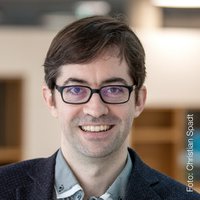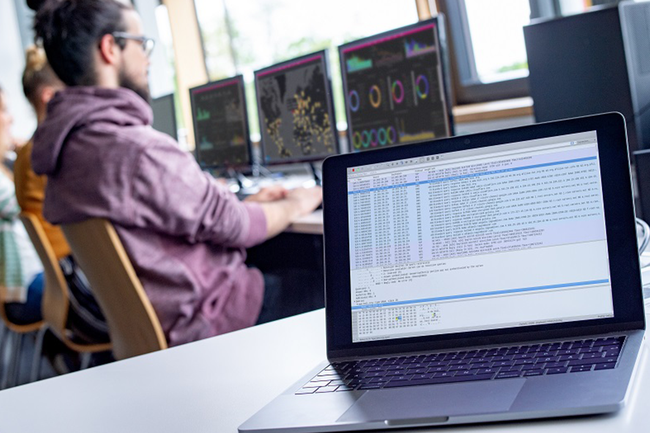2. Place at the Capgemini Sustainability Challenge
12 Students of the Bachelor programme Data Science and Business Analytics show big players, as Microsoft, ÖBAG, BIG and Capgemini their best.
During the Winter Semester 2021, 3 teams of Students from the FH St. Pölten, mainly from the Bachelor Data Science and Business Analytics, participated in the Sustainability Challenge. It was organised by a number of big Austrian companies such as Capgemini, Microsoft and ÖBAG.
The goal of this challenge was to use Machine Learning Computer Vision algorithms (specifically Semantic Segmentation) to analyse Satellite images of pieces of land, to determine the amount of biodiversity (how much grass and trees are there, compared to asphalt and buildings), as well as finding areas that have high potential for solar panels. The Team “Droids”, led by Kevin Kalch, was able to create a Neural Net (based on the U-Net architecture) to not only successfully complete this challenge, but also winning second place, among the approximately 30 teams, which also included international professional Data Scientists.
What was the Sustainability Challenge about?
EU governments have committed to reduce their CO2 emissions by 55% below the level of 1990 until 2030 to fight climate change. Among the biggest emitter of CO2 emissions is the real-estate sector, fueling climate change by energy consumption and floor sealing, thus reducing biodiversity. At the same time only 2-3% of the photovoltaic potential is used in Austria, leaving plenty of opportunities for a greener future.
The Sustainability Challenge was a challenge which was put out by the Capgemini, Microsoft and ÖBAG, with the aim to create a data science model, which assesses the carbon footprint of the real-estate portfolios of several partner firms and which helps to determine measures to reduce emissions. To tackle this challenge, the organisers provided Satellite Images of their holdings. The participants of the challenge needed to solve a two part challenge:
- The first part includes the development of a data science model that determines the carbon footprint of the companies real-estate portfolios based on areal pictures.
- The second part involves the assessment of the potential of photovoltaic and the level of biodiversity of the real-estate portfolios.
Click here to learn more about the sustainability Challenge!
How did we achieve second place?
In the context of a “Freifach” from the Bachelor Data Science and Business Analytics, 12 students from different experience levels worked together on this challenge, to try and come up with a solution. They were coached by lecturer Thomas Delissen, who helped them understand the more detailed challenges around developing such a model. During the first week, the challenge was mainly to understand the challenge, and getting the provided environment (Azure Databricks) correctly setup.
The students learned about computer vision problems, how to implement neural networks, and finally, how to increase the accuracy of these models to get better results. With effort and determination, Kevin Kalch from team Droids, was able to implement a complicated U-Net architecture, including several improvements upon the original, for example by using smart image augmentation methods and hyperparameter tuning.
How can I join next time?
The “Freifach” Data Science Challenge is given every semester, aimed at Data Science Students, who want to gain hands-on experience in solving these kind of challenges. Students from all years can join, from different experience levels, although some basic Python skills might be useful.
You can sign up for the Summer-Semester 2021 Freifach via CIS. This semester, our goal is to tackle the challenge from Data Mining Cup, competing with students teams from all over the world. Our main goal is to learn and have fun, winning is a nice bonus. Curious? Learn more about the sustainability Challenge and die Data Mining Cup.

